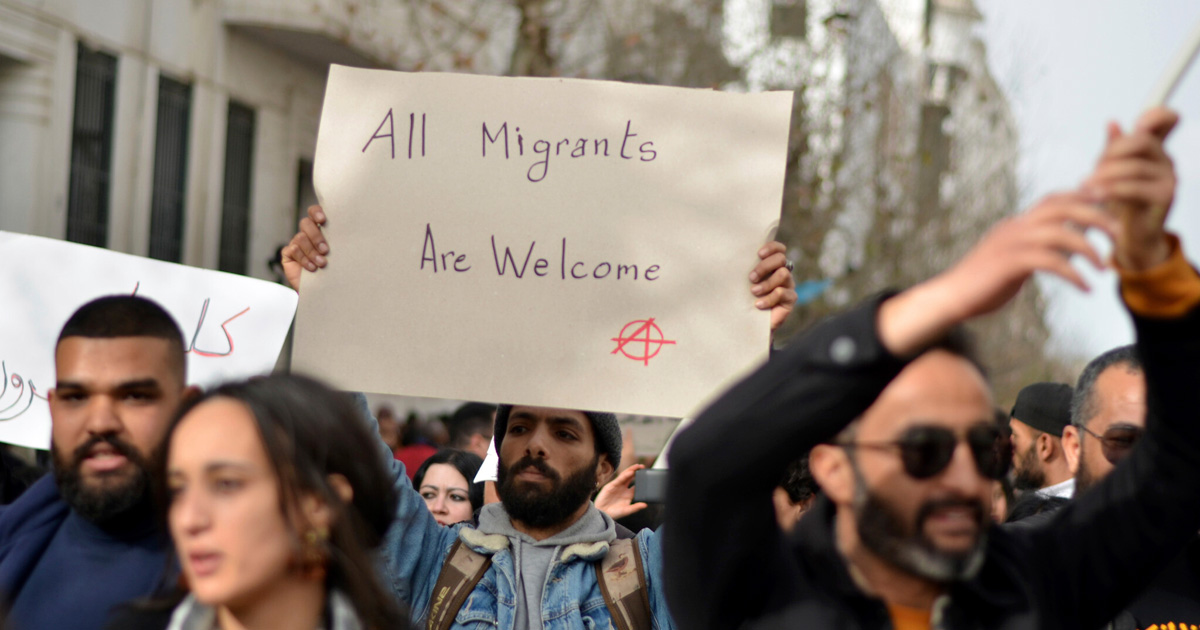The Centre for Human Rights, Faculty of Law, University of Pretoria (Centre) condemns the racist remarks made by the President of Tunisia and the arbitrary arrest, detention and forced eviction of African migrants in Tunisia.
On 22 February 2023, Tunisian President Kais Saied mischaracterised African migrants’ migration to Tunisia by alleging that it is motivated by the desire to change Tunisia’s demographic make-up. He also wrongly linked migrants with crime, which is unsubstantiated and inflammatory. The Centre finds that the President’s allegations are abhorrent and in conflict with Tunisia’s obligations under global and African regional human rights treaties.
News reports show that there is an increase in xenophobic propaganda targeting African migrants in Tunisia. The state has not taken measures to tackle the dissemination of hate speech on social media and mainstream media. Instead, the President has jumped on the xenophobic bandwagon and ordered officials to take ‘urgent measures’ against African migrants. The President’s speech has been accompanied by the arbitrary arrest of hundreds of African migrants mainly from sub-Saharan Africa. The arbitrary mass arrests violate migrants’ right to equal protection of the law and freedom and security and the rule of law broadly. Law enforcement officials and landlords are forcibly evicting migrants from their homes violating their right to adequate standards of living.
The Centre recalls that, as a party to the International Covenant on the Elimination of All Forms of Racial Discrimination (ICERD), Tunisia is under an obligation (under article 4(a) and (c)) to prohibit public authorities from inciting racial discrimination and incitement to acts of violence against persons of another colour or ethnic origin. The Centre further recalls that Tunisia is under an obligation, as a state party to UN Convention Relating to the Status of Refugees (under art 31(1)), not to penalise refugees on account of their irregular entry into Tunisia’s territory. The Centre reiterates that forced eviction is a violation of the right to housing, which is enshrined in several global and African regional human rights treaties, including the International Covenant on Economic, Social and Cultural Rights and the Protocol to the African Charter on Human and Peoples’ Rights on the Rights of Women. Forced eviction threatens the right of individuals, especially vulnerable groups such as women, children, persons with disabilities and older persons, to live in peace, dignity and security. Tunisia has the obligation to refrain from actions that endanger the legal security of tenure of migrants, including African migrants.
The Centre therefore calls on the President of Tunisia to retract his statement, issue an apology, and refrain from conduct that demeans, stigmatises and endangers migrants, and African migrants in particular.
The Centre further calls on the President and government of Tunisia to abide by their obligations as provided in the ICESCR, ICERD and other relevant international human rights obligations. They must stop the harassment, forced eviction, and arbitrary detention of migrants by state officials; ensure that the human rights of migrants are respected and protected in Tunisia; and take measures to remove bureaucratic hurdles impeding the regularisation of undocumented migrants including refugees who are in the country irregularly.


